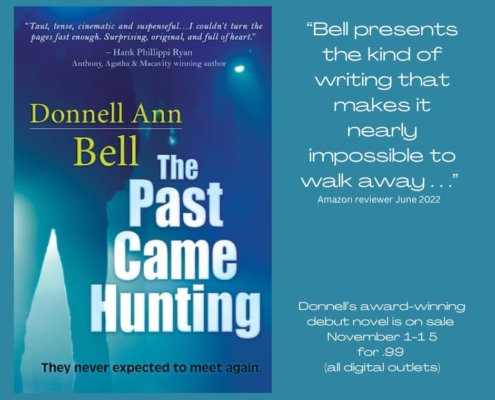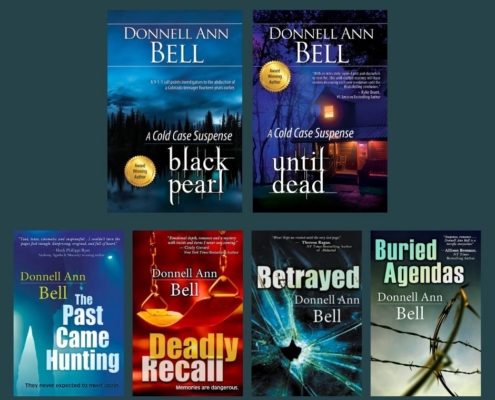
Author Donnell Ann Bell
By: Donnell Ann Bell
Years ago, when I left my newspaper job and turned to fiction, I was forced to become educated in a short amount of time. I also can assure you during that period, the self-assured nonfiction writer was humbled (Please note: I’m already pretty humble!).
WHAT I LEARNED:
There is a huge difference between fiction and nonfiction.
In journalism we’re taught not to editorialize, even when we are outraged, the topic turns personal, or we are particularly moved. While in fiction, we’re encouraged to do the opposite. Develop interesting characters, express their points of view, and show emotion on the page. Whether you’re writing science fiction, historical, fantasy, mystery, romance, the list goes on, in fiction, if your reader can’t relate to your character (or to put it bluntly—couldn’t care less), you’ve lost your reader.
To stress my point, as a new fiction writer, I once entered a contest in which New York Times Bestselling Author Suzanne Brockmann was my judge. She scribbled on my entry the following words, and trust me, she got her point across. “You write well BUT HOW DO THEY FEEL?”
There’s this thing called genre
Quite soon after I switched to fiction, I was told I should join a local writing group. To become a member, however, I would need to join the 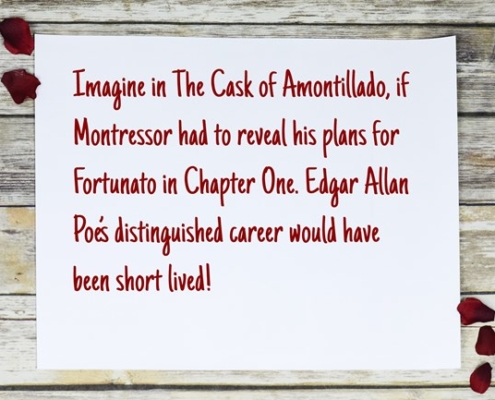 parent organization Romance Writers of America®. Both organizations during my tenure were stellar, and I credit both with my early fiction education. During my time with Pikes Peak Romance Writers, I attended something known as Open Critique (an avenue provided to writers not in a person’s regular critique group to provide fresh insight.) Here, I discovered another anomaly about fiction.
parent organization Romance Writers of America®. Both organizations during my tenure were stellar, and I credit both with my early fiction education. During my time with Pikes Peak Romance Writers, I attended something known as Open Critique (an avenue provided to writers not in a person’s regular critique group to provide fresh insight.) Here, I discovered another anomaly about fiction.
Fiction is broken into genres. To complicate matters, subgenres are often attached to the genre, oftentimes subs attached to the subgenres! On one Sunday afternoon, I submitted my perfectly written chapters, waited for the accolades, only to be met by the confused faces of my peers. “Why is this person skulking about? Who is he, and why should we care?” the OC leader demanded.
“I’m writing a mystery,” I stammered. “I can’t tell you that yet.”
That’s when I learned I was surrounded by romance writers who didn’t read my favorite genre. Further, they obviously couldn’t relate to what I was writing. One by one, in a chorus of agreement, members of the critique group asked me to explain upfront what my character was up to. Hardly conducive to my mystery plot. Imagine in The Cask of Amontillado, if Montressor had to reveal his plans for Fortunato in Chapter One. Edgar Allan Poe’s distinguished career would have been short lived, indeed!
Fortunately, I found a romantic suspense chapter in RWA® and remained in that group for many years.
But then I learned . . . .
Genres and subgenres evolve.
Much like society, authors change their mores and preferences. Romantic Suspense, which I enjoyed writing (and still do), began heating up the pages. Readers obviously adored the added sizzle, and publishers and their marketing departments noticed. Management conveyed those statistics to their editors. Editors spoke to the agents, and naturally my agent listened closely.
She asked me to spice up my unpublished novel, which back then was winning awards. The unpublished title was Walk Away Joe, and as an aspiring author who wanted to sell, I did my best. Unfortunately, I found I didn’t enjoy writing hot and steamy; I preferred suspense. Don’t get me wrong, if my book called for a sex scene, I was all in. I just didn’t enjoy writing copious amounts of it. Further I don’t do gratuitous anything—whether it be violence or sex.
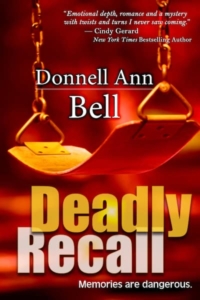 Around this time, my agent and I parted ways. By then, my second unpublished novel, DEADLY RECALL Deadly Recall | Romantic Suspense Thriller | Author Donnell Ann Bell, finaled in a major contest, and I queried BelleBooks, who is my publisher to this day. Pat Van Wie bought the book and would become my first editor. Still, in my editorial letter she told me to get rid of so much sex. We’re buying you because of your suspense. Not very flattering about the added sex scenes I’d worked hard to include. But truth be told, I was vastly relieved.
Around this time, my agent and I parted ways. By then, my second unpublished novel, DEADLY RECALL Deadly Recall | Romantic Suspense Thriller | Author Donnell Ann Bell, finaled in a major contest, and I queried BelleBooks, who is my publisher to this day. Pat Van Wie bought the book and would become my first editor. Still, in my editorial letter she told me to get rid of so much sex. We’re buying you because of your suspense. Not very flattering about the added sex scenes I’d worked hard to include. But truth be told, I was vastly relieved.
Walk Away Joe became THE PAST CAME HUNTING. It still includes a couple of sex scenes, and the chapters are loaded with romance and sexual tension. In my opinion, though, I left the critical scenes that belong in the book.
Years have passed since my debut book was published, but it remains one of my most popular books. And . . . as it turns out my publisher has put it on sale for .99, but the sale ends tomorrow, November 15! So, if you’re interested, grab yours quick!
These days I belong to Sisters in Crime, Mystery Writers of America, and International Thriller Writers. My editor is Debra Dixon, one very smart woman and the touted expert on Goal, Motivation, and Conflict. I write task force suspense and single title romantic suspense and my learning trek continues every day. https://www.donnellannbell.com
As I close out this blog, I’m curious about my fellow Stiletto Gang authors and others who may be weighing in. Was your journey anywhere close to mine? What early lesson(s) did you take away that led to what you write today? In other words, how have you grown as a writer?
Till next time!

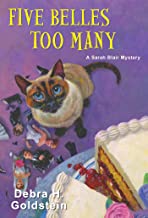

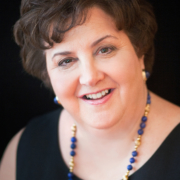
 Two years ago, when we moved from New Jersey to Tennessee, my husband and I cut the landline cord. We’d only kept our landline for as long as we had because cell service in our NJ home was spotty at best. If I had to guess, I’d say that at least 75% of the calls that came in on the landline were from spammers and scammers. Now, instead of receiving at least half a dozen spam and scam calls a day, I receive one or less a week.
Two years ago, when we moved from New Jersey to Tennessee, my husband and I cut the landline cord. We’d only kept our landline for as long as we had because cell service in our NJ home was spotty at best. If I had to guess, I’d say that at least 75% of the calls that came in on the landline were from spammers and scammers. Now, instead of receiving at least half a dozen spam and scam calls a day, I receive one or less a week.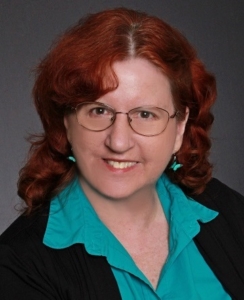
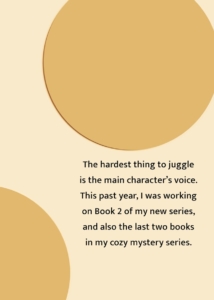 The new series’ protagonist is a tough-as-nails veteran cop. She is thrown off kilter though, when she moves to Florida to take a job as the chief of police of a small city department. She’s mid-forties, no-nonsense, and thought she had a pretty thick wall around her heart.
The new series’ protagonist is a tough-as-nails veteran cop. She is thrown off kilter though, when she moves to Florida to take a job as the chief of police of a small city department. She’s mid-forties, no-nonsense, and thought she had a pretty thick wall around her heart.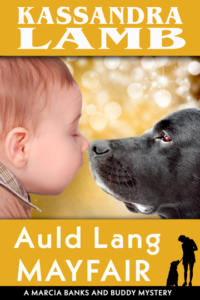 newer one, I have Judith, a mature woman who needs to learn to lighten up some and let people in more readily, and not be so hard on herself when she makes mistakes.
newer one, I have Judith, a mature woman who needs to learn to lighten up some and let people in more readily, and not be so hard on herself when she makes mistakes.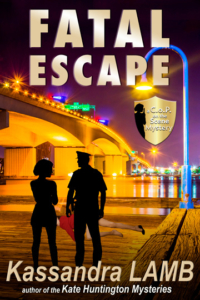 About Fatal Escape: Two months on the job and barely recovered from a serial killer case, Chief of Police Judith Anderson is called out to the scene of what looks like a suicide—or is it? There’s no ID on the woman, and her abandoned car has been partially wiped clean of fingerprints. Judith’s search for answers leads to a human trafficking ring operating in her city…and the realization that she’s up against more than one ruthless foe, perhaps even someone on her own force. Can Judith stop the traffickers and find a killer…before more lives are destroyed?
About Fatal Escape: Two months on the job and barely recovered from a serial killer case, Chief of Police Judith Anderson is called out to the scene of what looks like a suicide—or is it? There’s no ID on the woman, and her abandoned car has been partially wiped clean of fingerprints. Judith’s search for answers leads to a human trafficking ring operating in her city…and the realization that she’s up against more than one ruthless foe, perhaps even someone on her own force. Can Judith stop the traffickers and find a killer…before more lives are destroyed?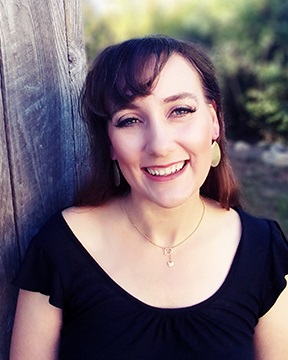
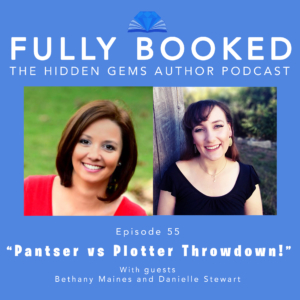
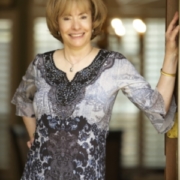
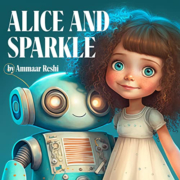 This past December, Ammaar Reshi used readily available computer apps to create Alice and Sparkle, a children’s picture book. He has not hit any best seller lists and the book is controversial, especially with graphic designers who feel portions of their work can be plagiarized since the apps use composites of what is online from designers who created the digital art from scratch.
This past December, Ammaar Reshi used readily available computer apps to create Alice and Sparkle, a children’s picture book. He has not hit any best seller lists and the book is controversial, especially with graphic designers who feel portions of their work can be plagiarized since the apps use composites of what is online from designers who created the digital art from scratch.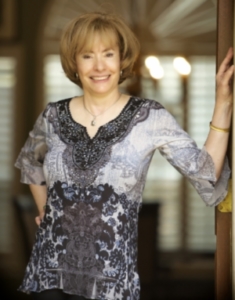 Kathryn Lane is the award-winning author of the Nikki Garcia Mystery Series.
Kathryn Lane is the award-winning author of the Nikki Garcia Mystery Series. Kindle:
Kindle: 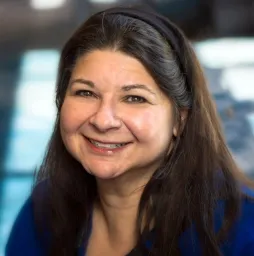
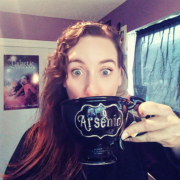
 Learn More About Winter Wonderland
Learn More About Winter Wonderland Bethany Maines is the award-winning author of action-adventure and fantasy tales that focus on women who know when to apply lipstick and when to apply a foot to someone’s hind end. She can usually be found chasing after her daughter, or glued to the computer working on her next novel (or screenplay). You can also catch up with her on
Bethany Maines is the award-winning author of action-adventure and fantasy tales that focus on women who know when to apply lipstick and when to apply a foot to someone’s hind end. She can usually be found chasing after her daughter, or glued to the computer working on her next novel (or screenplay). You can also catch up with her on 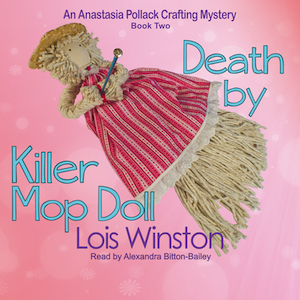
 Australia, Canada, and beyond. There was one individual in our group who was a terrific writer and well versed in geography and military affairs. His protagonist was a military officer, and he and his sidekick went everywhere to complete their missions. In fact, his first working title was, “To the Ends of the Earth.”
Australia, Canada, and beyond. There was one individual in our group who was a terrific writer and well versed in geography and military affairs. His protagonist was a military officer, and he and his sidekick went everywhere to complete their missions. In fact, his first working title was, “To the Ends of the Earth.” I confess I’m not a world traveler. The most international travel I’ve done has been as far as Canada and Mexico. So, I was rather intimidated when he wrote about places like East Timor, Somalia, and Egypt.
I confess I’m not a world traveler. The most international travel I’ve done has been as far as Canada and Mexico. So, I was rather intimidated when he wrote about places like East Timor, Somalia, and Egypt. that appeared well-documented and authentic. It’s astounding how much data comes at us daily. Time is money, sensationalism sells, and media outlets have more competition than ever—professionals and amateurs alike—are writing, filming, and posting. Breaking news attracts viewers and boosts algorithms. Readers copy links. Others forward to their friends and family, and so on, and so on . . . .
that appeared well-documented and authentic. It’s astounding how much data comes at us daily. Time is money, sensationalism sells, and media outlets have more competition than ever—professionals and amateurs alike—are writing, filming, and posting. Breaking news attracts viewers and boosts algorithms. Readers copy links. Others forward to their friends and family, and so on, and so on . . . .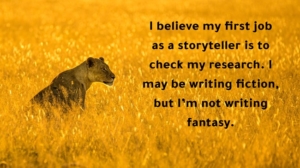 Back to that long-ago critique partner, when emailing our chapters back and forth, I admitted how little I knew about world geography. He responded with, “Go get your globe.” I did, then via email, he said, “Now using your finger, follow my lead.” That method was better than any geography class I could have taken. To this day, when reading international articles where I’m unsure of the location, I enlist my globe.
Back to that long-ago critique partner, when emailing our chapters back and forth, I admitted how little I knew about world geography. He responded with, “Go get your globe.” I did, then via email, he said, “Now using your finger, follow my lead.” That method was better than any geography class I could have taken. To this day, when reading international articles where I’m unsure of the location, I enlist my globe. parent organization Romance Writers of America®. Both organizations during my tenure were stellar, and I credit both with my early fiction education. During my time with Pikes Peak Romance Writers, I attended something known as Open Critique (an avenue provided to writers not in a person’s regular critique group to provide fresh insight.) Here, I discovered another anomaly about fiction.
parent organization Romance Writers of America®. Both organizations during my tenure were stellar, and I credit both with my early fiction education. During my time with Pikes Peak Romance Writers, I attended something known as Open Critique (an avenue provided to writers not in a person’s regular critique group to provide fresh insight.) Here, I discovered another anomaly about fiction. Around this time, my agent and I parted ways. By then, my second unpublished novel, DEADLY RECALL
Around this time, my agent and I parted ways. By then, my second unpublished novel, DEADLY RECALL 